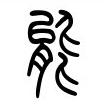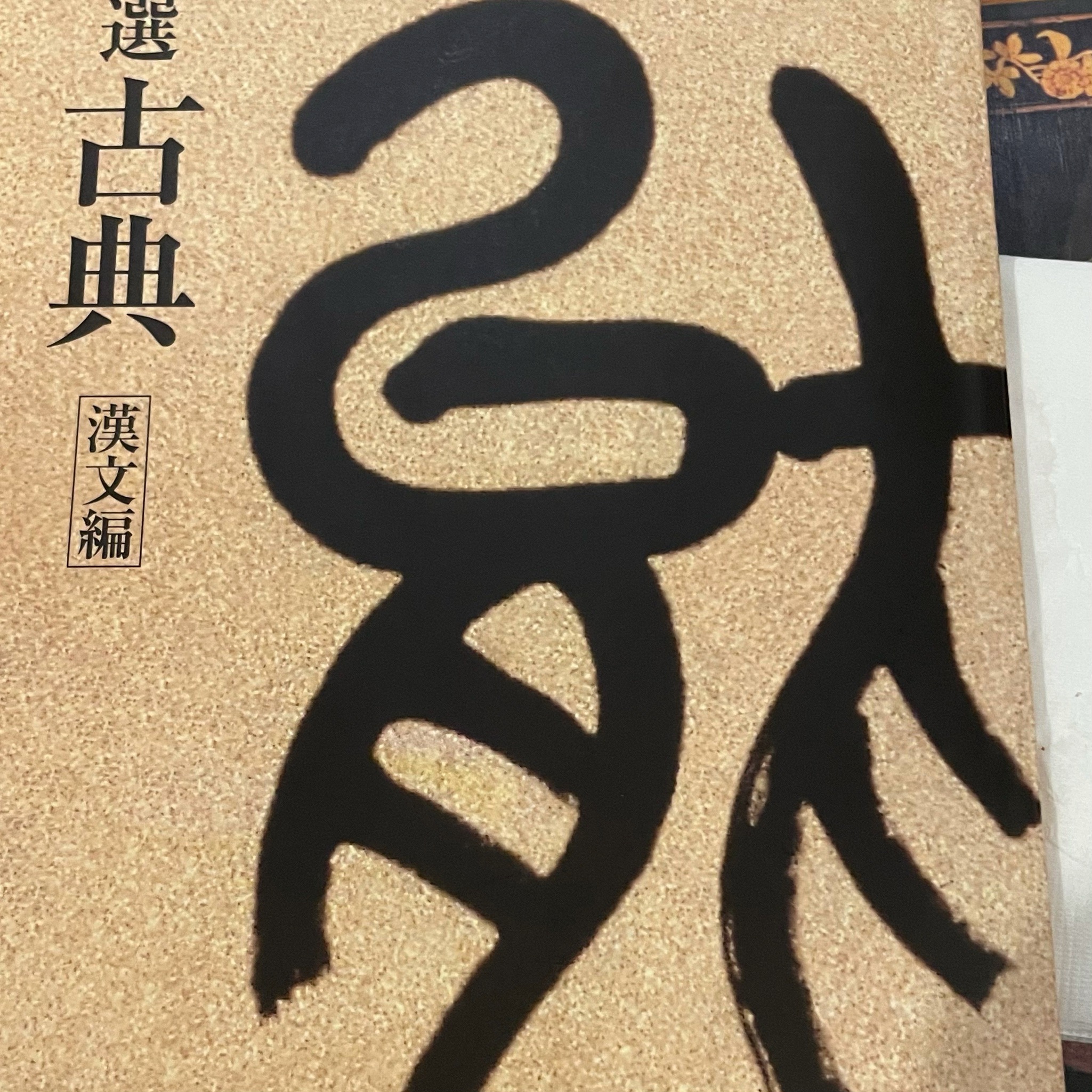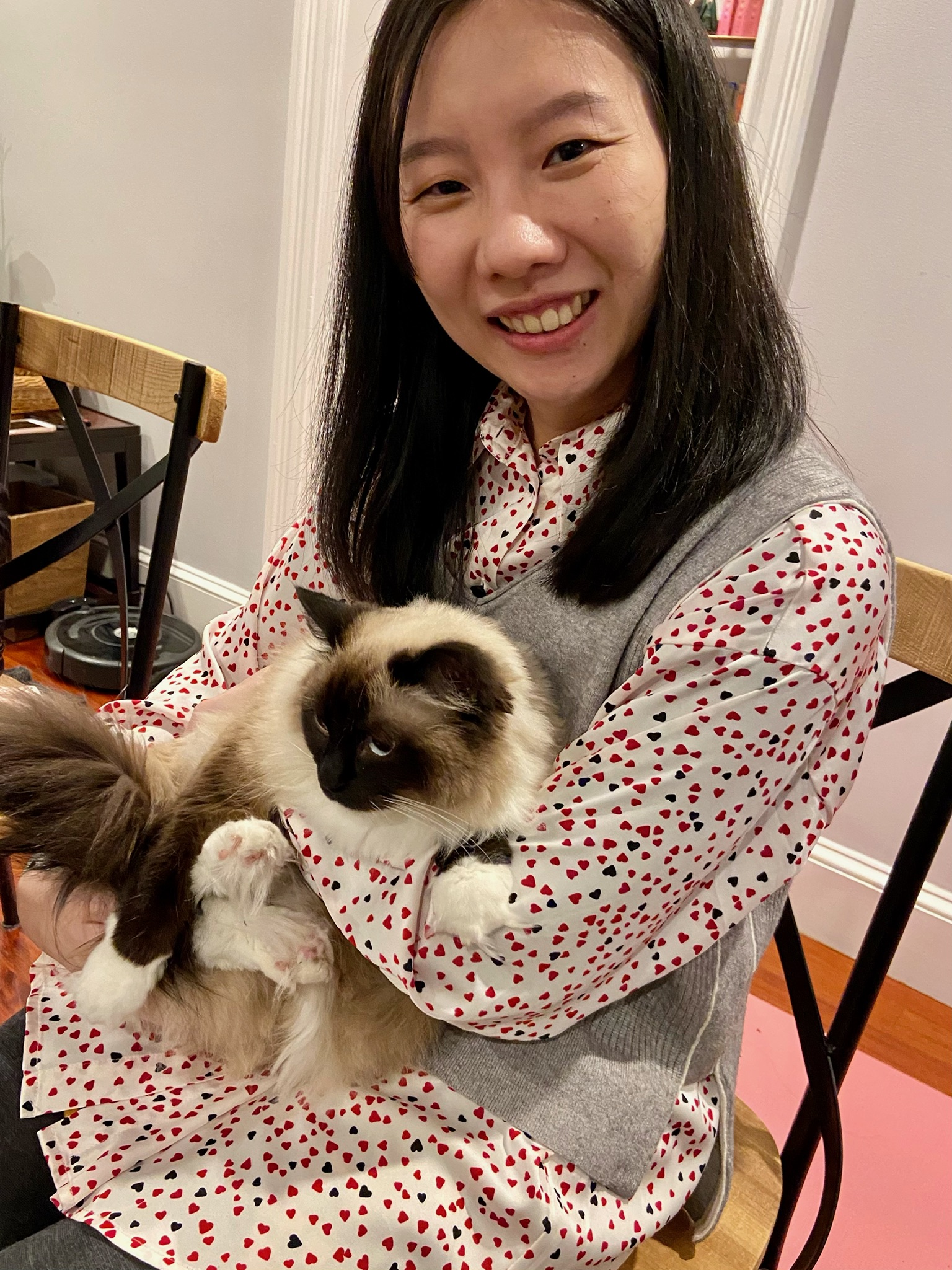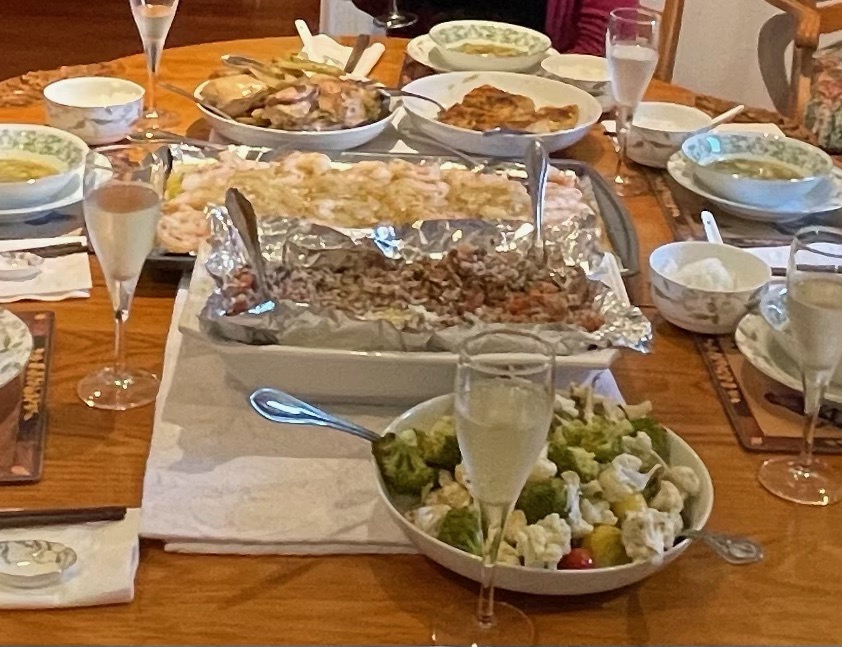Chinese Version
April 2021
During one of our Wednesday night gatherings, Shirah brought her Japanese high school Chinese literature text book to share.
After the dinner and the dessert, Shirah took out her book from her bag and placed it on the dinner table. We all turned our heads to peek into the Chinese articles in the book with curiosity.
Majored in literature since college, Grace enjoyed reading many familiar old poems and articles. While explaining to us in details, she discussed some of the works with Shirah.
Grace said: “Some articles in this textbook have a few different characters from the same articles in our textbook.”
After hearing Grace’s comment, Shirah thought a bit and replied: “Maybe they came from different versions.”
Shirah recited a few famous Chinese pomes for us, we noticed the sounds in Japanese lacked the rhythm carried by Chinese.
Curious Lou studied the title of the Japanese textbook: a single Chinese character in Xiaozhuan style.
I took a peek and said: “It seems like the dragon character in Xiaozhuan.”

Everyone took a close look at the title on the book cover and said that character is different from dragon character. Then Lou found “capable” in Xiaozhuan, which has the same left part as the title. However, the right part is different from the title.

Someone thought out loud: “‘Capable’ or ‘able to’ is not noun.”
Someone found: “Capable is adjective. how could an adjective be title?”
Lou seems addictive to doing research now. He focused his attention on his cell phone for a while and announced : “I found the completed sentence in the same XiaoZhuan style on a Japanese museum web site: ‘to be capable one needs to learn, to be wise one needs to ask.’”
After reading the completed sentence on Lou’s phone, we all understood the meaning of “capable” as the title on the Japanese textbook of Chinese literature: “want to gain ability, one must learn.”
Six highly skilled readers, including three PhDs in science and there PhD candidates in liberal arts, worked together to learn about the character of capable in XiaoZhuan and to solve the puzzle of using a single character as the title. Learning how to do research while playing is fun.
I remembered a story of Grace’s “to be capable needs to learn”: recently she told us: “I just learnt how to hold a cat on Youtube: one hand hold the butt, another hand hold the chest.” She immediately picked up Kara for a demo. Seeing Kara quietly curved in front for Grace, we all cheered for Grace.
Little Episodes
3. The cover of Japanese high school Chinese literature textbook

“to be capable one needs to learn, to be wise one needs to ask” come from Confucius’ family language: disciple’s journey.
4. I was surprised to see BaiJuYi’s famous poem of “Man Sells Charcoal” in the textbook.
When I was in middle school we were all required to recite “Man Sells Charcoal”. Rereading this poem again, I remember my literal teacher’s comment of this pome deeply exposed the ruler’s cruelty to ordinary people. In addition, I was also touched by “Even with a thin layer of clothes, the man still wished for an even colder weather”, because he wanted a good price for his coal,which expressed his strong desire for survival.
Rereading the poem of “Man Sells Charcoal”, I had a chance to recall more than 40 years’ memory and see the change in my perspective now: I understand more about the desire to survive, as a primeval force in a ordinary life which could bring great fulfillment and satisfaction. I was happy for this understanding.
BaiJuYi’s “Man Sells Charcoal”
(摘自:廊桥梦者)
卖炭翁,mài tàn wēng
伐薪烧炭南山中。fá xīn shāo tàn nán shān zhōng
满面尘灰烟火色,mǎn miàn chén huī yān huǒ sè ,
两鬓苍苍十指黑。liǎng bìn cāng cāng shí zhǐ hēi 。
卖炭得钱何所营?mài tàn dé qián hé suǒ yíng ?
身上衣裳口中食。shēn shàng yī shang kǒu zhōng shí
可怜身上衣正单,kě lián shēn shàng yī zhèng dān ,
心忧炭贱愿天寒。xīn yōu tàn jiàn yuàn tiān hán 。
夜来城外一尺雪,yè lái chéng wài yī chǐ xuě ,
晓驾炭车辗冰辙。xiǎo jià tàn chē niǎn bīng zhé 。
牛困人饥日已高,niú kùn rén jī rì yǐ gāo ,
市南门外泥中歇。shì nán mén wài ní zhōng xiē 。
翩翩两骑来是谁?piān piān liǎng qí lái shì shuí ?
黄衣使者白衫儿。huáng yī shǐ zhě bái shān ér 。
手把文书口称敕,shǒu bǎ wén shū kǒu chēng chì ,
回车叱牛牵向北。huí chē chì niú qiān xiàng běi 。
一车炭,千余斤,yī chē tàn ,qiān yú jīn ,
宫使驱将惜不得。gōng shǐ qū jiāng xī bú dé 。
半匹红绡一丈绫,bàn pǐ hóng xiāo yī zhàng líng ,
系向牛头充炭直。xì xiàng niú tóu chōng tàn zhí 。


